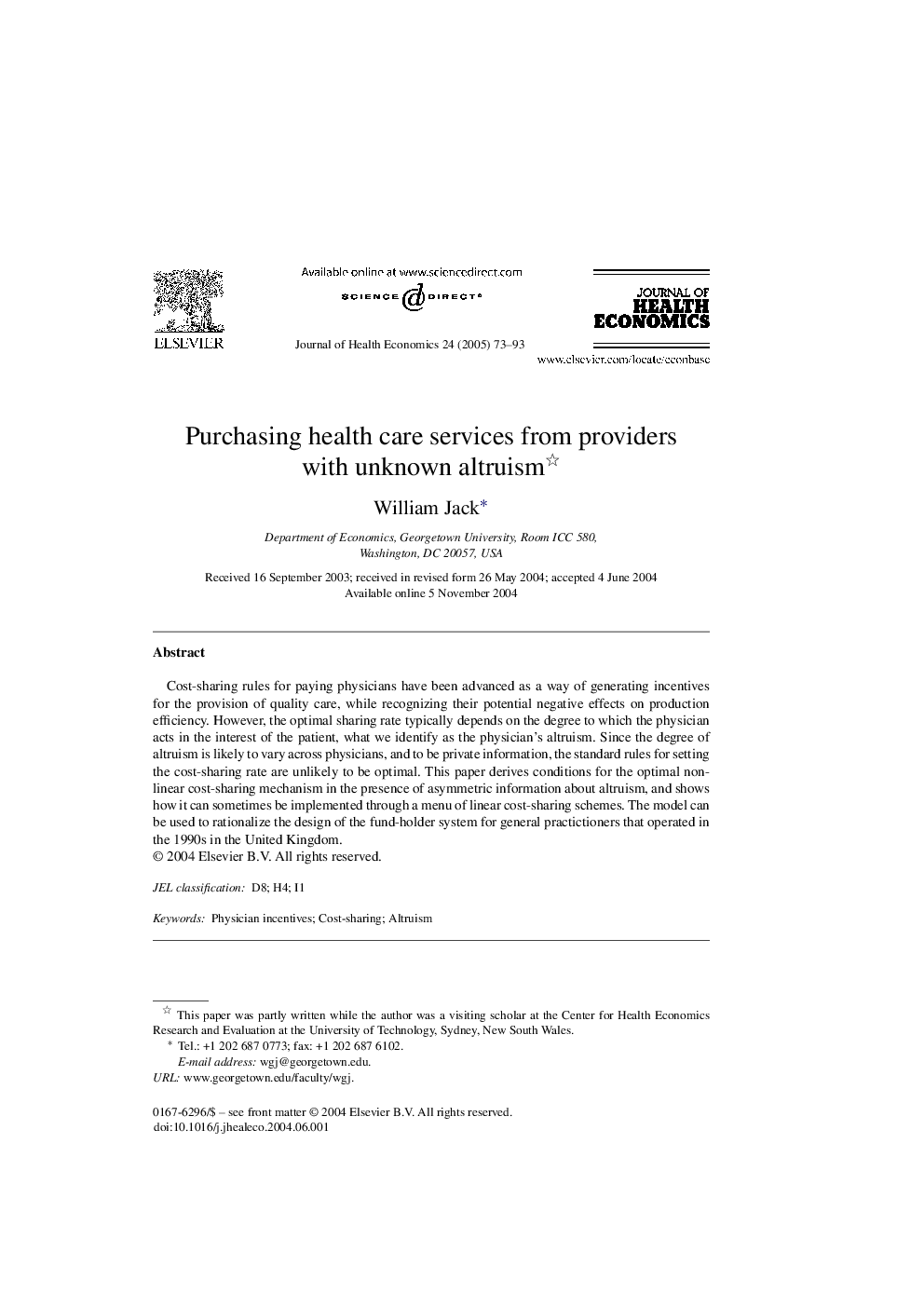| Article ID | Journal | Published Year | Pages | File Type |
|---|---|---|---|---|
| 10476817 | Journal of Health Economics | 2005 | 21 Pages |
Abstract
Cost-sharing rules for paying physicians have been advanced as a way of generating incentives for the provision of quality care, while recognizing their potential negative effects on production efficiency. However, the optimal sharing rate typically depends on the degree to which the physician acts in the interest of the patient, what we identify as the physician's altruism. Since the degree of altruism is likely to vary across physicians, and to be private information, the standard rules for setting the cost-sharing rate are unlikely to be optimal. This paper derives conditions for the optimal non-linear cost-sharing mechanism in the presence of asymmetric information about altruism, and shows how it can sometimes be implemented through a menu of linear cost-sharing schemes. The model can be used to rationalize the design of the fund-holder system for general practictioners that operated in the 1990s in the United Kingdom.
Related Topics
Health Sciences
Medicine and Dentistry
Public Health and Health Policy
Authors
William Jack,
